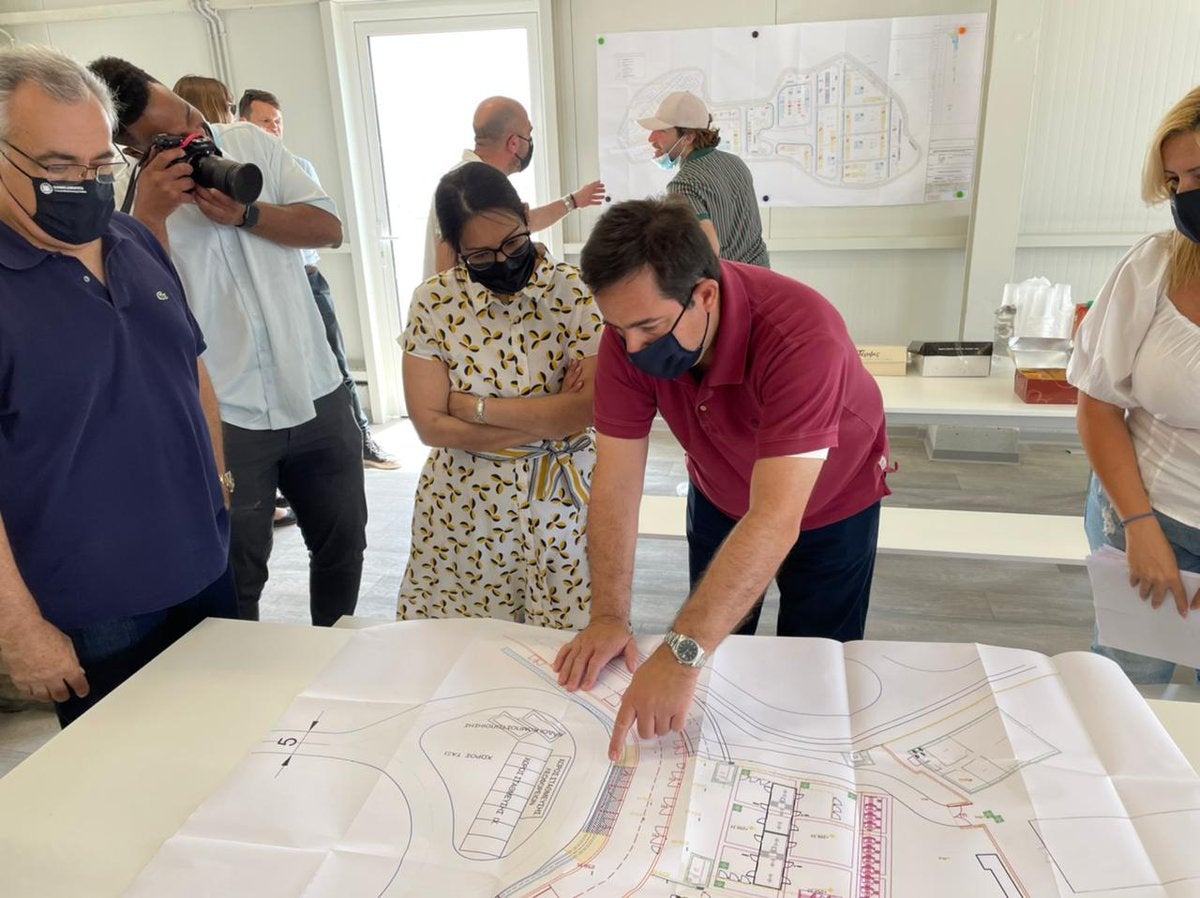Priti Patel visits ‘inhumane’ Greek asylum reception centre
Fears UK home secretary planning to emulate ‘closed’ asylum centres in Greece following visit to Samos

Your support helps us to tell the story
From reproductive rights to climate change to Big Tech, The Independent is on the ground when the story is developing. Whether it's investigating the financials of Elon Musk's pro-Trump PAC or producing our latest documentary, 'The A Word', which shines a light on the American women fighting for reproductive rights, we know how important it is to parse out the facts from the messaging.
At such a critical moment in US history, we need reporters on the ground. Your donation allows us to keep sending journalists to speak to both sides of the story.
The Independent is trusted by Americans across the entire political spectrum. And unlike many other quality news outlets, we choose not to lock Americans out of our reporting and analysis with paywalls. We believe quality journalism should be available to everyone, paid for by those who can afford it.
Your support makes all the difference.Priti Patel has visited a controversial new “closed” asylum centre on the Greek island of Samos, prompting concern that she plans to implement similar structures for asylum seekers in the UK.
The home secretary arrived in Greece on Tuesday, where she met the country’s migration minister Notis Mitarachi, who said in a statement that the pair “discussed the immigration crisis, which affects both Greece and Britain”.
On Wednesday morning, the two ministers visited a newly constructed asylum reception centre on Samos Island, which is due to open on 18 September, along with four similar sites elsewhere on the Aegean islands, all of which the Greek government says will be “closed and controlled”.
Photographs posted on Mr Mitarachi’s Twitter account show him and Ms Patel looking at diagrams of the centre and then observing the construction in real life.
The Independent understands that Ms Patel was interested in seeing the centre to inform the implementation of her own plans to create “reception centres” for asylum seekers in Britain.
Campaigners have described the structures as “prisons-like” and “inhumane”, and said the idea of them being replicated in the UK was “deeply concerning”.
During her visit, the home secretary also met with Ioannis Plakiotakis, the Greek shipping and island policy minister, to discuss Greece’s response to small boat crossings in the Aegean Sea and the involvement of organised immigration crime gangs.
In a statement published after the trip, Ms Patel said: “We have seen a surge in illegal migration across Europe, and we must continue to work closely with Greek partners to tackle this challenge that both our countries face.
“Only by working together can we break up these crime gangs that extend throughout Europe and beyond, and stop the horrific trade in people across the continent.”
Her visit to Samos comes three months after immigration minister Chris Philp visited the island in May with no public announcement.
The Home Office refused to respond to a freedom of information request in June asking the reason for Mr Philp’s visit, on the basis that it may “relate to the formulation or development of government policy” and could be “likely to prejudice relations between the UK and another state”.
Rosie Rooney, the advocacy coordinator at campaign group Europe Must Act, said Ms Patel’s and Mr Philp’s visits to Samos raised “serious questions” about why the Home Office was “so interested in an island where conditions for people seeking asylum are completely inadequate”.
“The new camp on Samos is for all intents and purposes a prison, and the Greek government is already constructing similar facilities across Greece. These camps are inhumane and degrading, and the idea of them being replicated in Britain is deeply concerning,” she said.
Ms Patel’s visit to Samos comes after The Independent revealed on Tuesday that a vulnerable young asylum seeker had been stranded on the island for months after the Home Office refused his application to be reunited with his brothers, who are both refugees in the UK.
Following Brexit, the Dublin Regulation, which allowed refugees in mainland Europe to reunite with relatives in the UK and vice versa, no longer applies to Britain, which has left many separated from their loved ones.
Ms Rooney said: “Instead of learning about camp construction, we ask the home secretary to focus on finding a replacement for Dublin family reunion, which ended after Brexit.
“There are still refugees in Greece, including children, who have loved ones in the UK and no way to reach them – a safe and legal route to reunite these families is urgently needed.”
Nick Thomas-Symonds, the shadow home secretary, said: “Working with European partners is important and recognises the scale of the challenge. However, any properly functioning asylum system in the UK will rely on firm international agreements to replace the Dublin accords.
“Yet the government is instead trying to push through legislation that is counter-productive and will risk breaking international law.”
Beth Gardiner-Smith, the chief executive of Safe Passage, said: “It beggars belief that the home secretary would wish to emulate a system where over 7,500 refugees including 1,700 children are being detained in refugee camps in unsanitary and inhumane conditions.
“Priti Patel should use her visit to reopen the family reunion route for these children and offer Britain’s support to relocate some of the unaccompanied children in Greece living in temporary camps and homeless, as councils across Britain have offered to do.”
Join our commenting forum
Join thought-provoking conversations, follow other Independent readers and see their replies
Comments